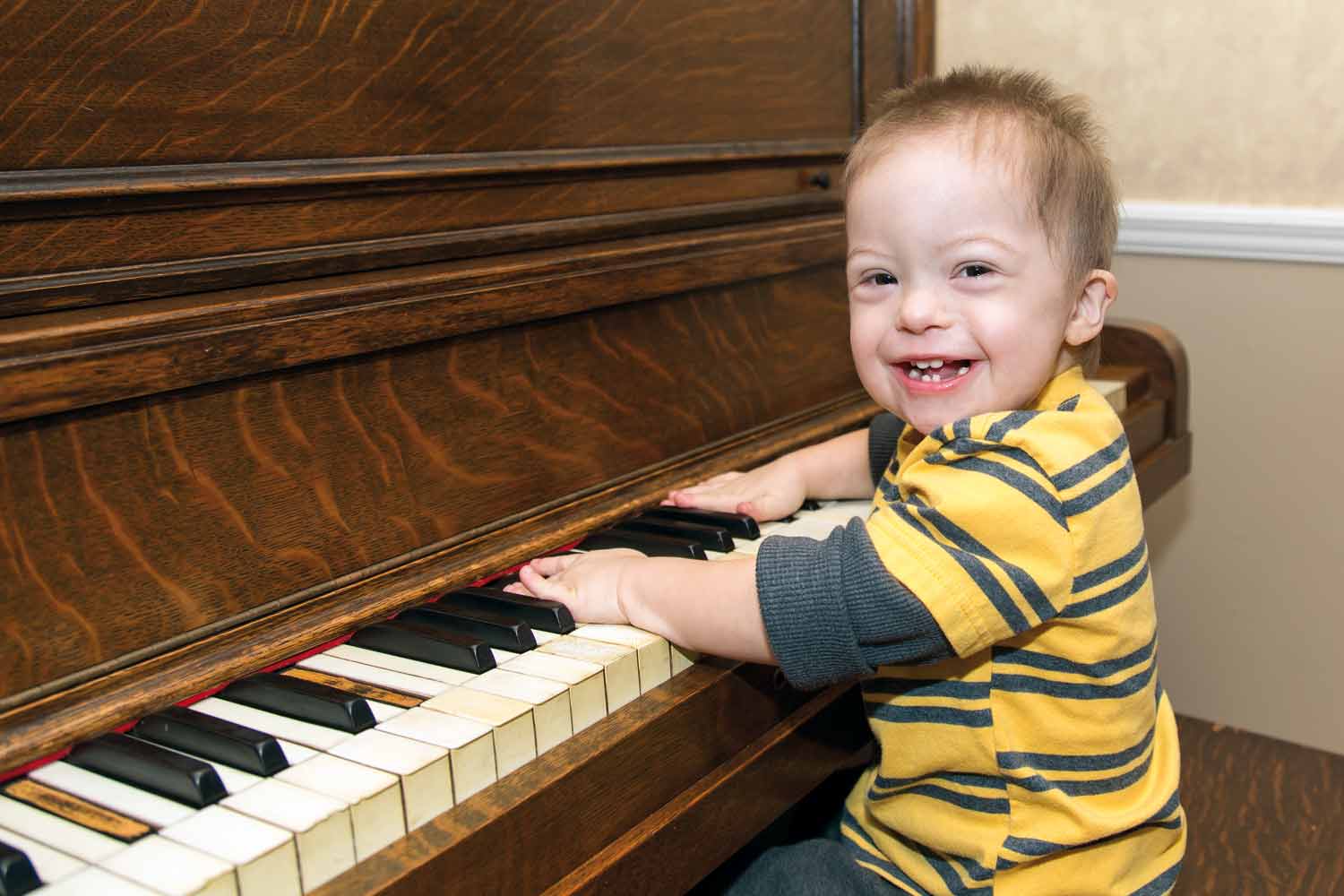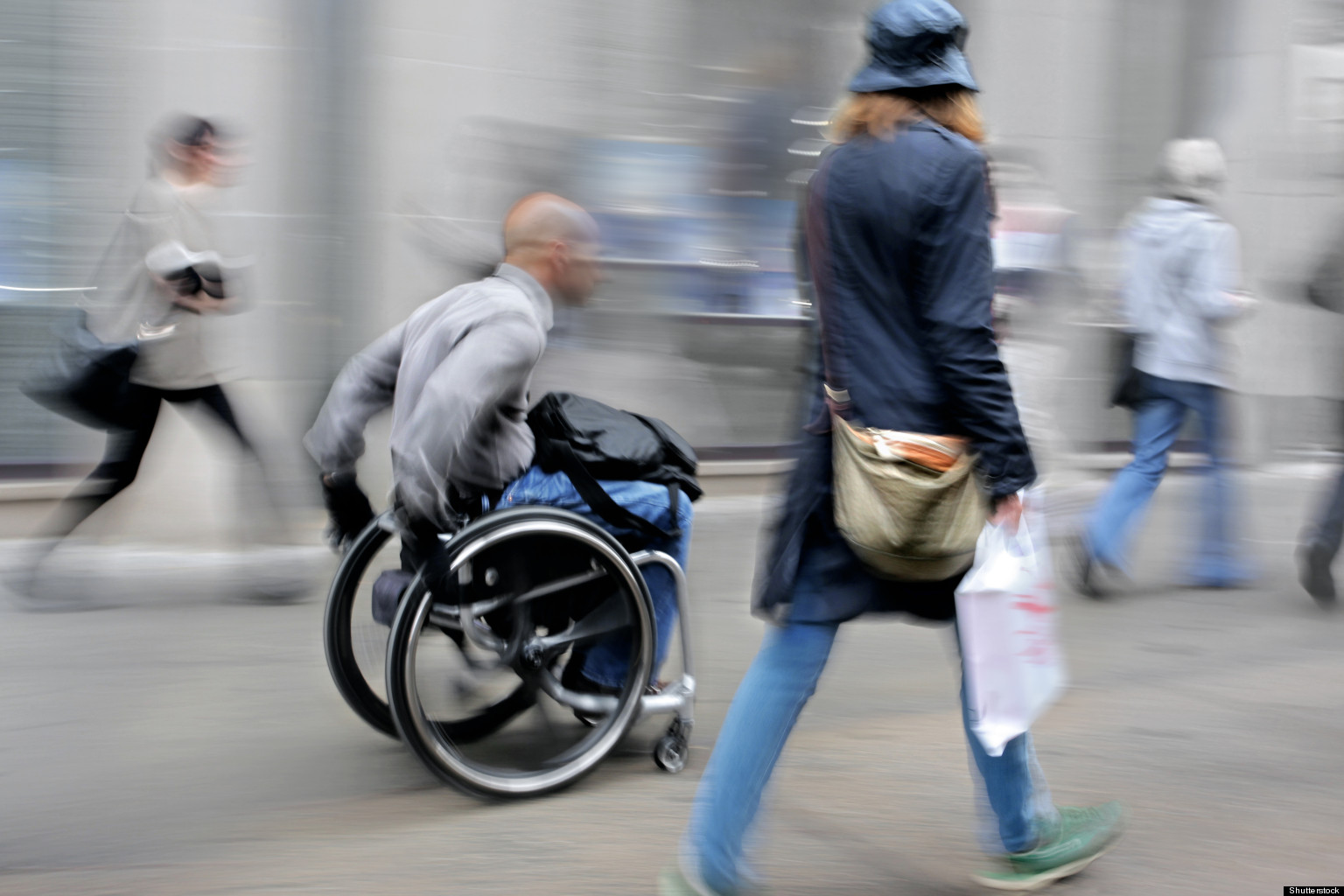Behavior Towards Differently Abled | End the Awkwardness
Disability is an intense term. We all consider it as something that individuals with special needs are missing. Say, for example, if you see somebody who is blind you would most certainly try to empathize with him or her that they cannot even mentally visualize our color spectrum this world offers to us. Or the one you might have saw who cannot stand or walk by him/herself. Your first reaction would be curiosity to know what kind of life they could be leading, the hampering of day to day activities even if those individuals might probably be executing their tasks quite smoothly. And here we are left wondering, How!
Nearly 10% of the world’s population is (either) born (or later develop as being) blind, deaf, with autism, down syndrome, ADHD, muscular dystrophy, and so on, roughly contributing around 650 million people across the globe.

Our world has a history of ill treatment towards differently abled people even in those countries who are now termed as “progressive”. There are countless cases of execution in the Nazi’s concentration camps for those who were practically “useless”. Even America didn’t have proper legal law before the year 1990.
Biologically, a pregnant woman might develop a physically or mentally challenged fetus into a fully grown child inside of her without miscarrying it; quite contrary to the fact that the body terminates the pregnancy itself in the first trimester if it finds out any genetic fault.
In the first few years, most parents try to discover their toddlers much as they can, and get disheartened if they think that others’ kids are way ahead of their own. People, on the other hand, would treat those juveniles as if they do not belong to their “normal” community, moreover convincing the parents themselves that their child (or children) would always stay behind. I am most certainly aware that our surroundings have a lot of individuals who have one or more kinds of emotional troubles such as stress, anxiety and depression because of their stubbornness to achieve supremacy and failure to reach or maintain that mark. But that’s, of course, invisible and so doesn’t count, isn’t it!
In India, one can find numerous people who would most likely feel pity or curse the person who is either born with physical issues or has developed in his/her later life’s stages. Others would believe that this is what God’s plan is as a result of Karma OR payback of past actions, and they would misbehave around because this is how these people are “supposed to be treated”. The point is, whether or not Karma exists, or these individuals have done something bad or not, nobody has the right to physically or mentally abuse anybody. If you really believe in Karma then you should also take note that you are eligible for Karmic settlements as well. The universe was never biased and by no means ever will.
Homo sapiens are social animals. We cannot survive for longer being isolated. We fear social rejections and boycott, and due to this, we will try our best to fit in. As a result, we become hypocritical. Nevertheless, we also operate in the same manner, and react negatively to those who are exceptionally distinctive because of social dogma or “peer pressure”.
My heart fills with agony if I discover that someone cannot really empathize with what a person might have gone through, the mental and physical trauma and scars that remain there with them for life. It gets even more disappointing if I hear extremely mean statements against somebody who had literally never caused any harm or interference.
It is also difficult for me to figure out why some of the family members and relatives of differently abled wouldn’t consider them as one of their own but somebody who doesn’t matter while taking important decisions or during mature discussions even though they are adults of considerable age. Moreover, I barely saw anyone who willingly wants to marry the one who is “socially unacceptable”. Though it happens in case of love marriages, nevertheless factually speaking arrange marriages are much prevailing in my country and absolutely no family encourages what I just mentioned. Even if somebody tries, other family members and relatives would greatly object and intervene. I had seen it myself people rejecting marriage proposals because the other party had Epilepsy Seizures. What would you do if they develop the health troubles later? Divorce them?
“Once my aunt had said to my mother that I didn’t require to buy costly outfits on wedding occasions, despite we could clearly afford, pointing out loud and clear that I didn’t matter, and that it would be a huge waste of money for the one who couldn’t be introduced as a matter of pride, but sheer distress!”

Talented and skillful differently abled
There is a reason why these days we most often hear or read “differently abled” instead of disabled. Being “disabled” is a perception. I still remember in the year 2006, when our 12th class board examination’s results were out, there was a boy of my age who could barely see at a distance more than just 6 inches, yet still managed to score 92% in Arts subject and topped the entire country. He used to wear glasses and had to keep his eyes really close to paper sheets where he would write.
I still remember during my bus journey there was a teenager girl who too was traveling somewhere, probably was returning back to home from school or coaching classes. Both of her hands did not have palms and fingers at either side. It made me wonder how could she open and close her bag’s chain, OR even hold objects. I literally saw her doing that! She was obviously born in that way and trained her mind and body to perform certain tasks right from her childhood.
There was a woman whose video got viral a few years back who didn’t have hands at all and still could accomplish literally every kind of day to day tasks, including computer typing, changing nappies of her baby, driving her car, and so on by entirely depending on her flexible legs.
A person who is visually impaired tends to develop his/her other senses in a more heightened manner. They get more sensitive to sound and touch. In fact, researches show that if a person was born blind and has never really saw any object, say a fan, can visualize its shape in his/her brain and is most likely right in terms of perception if he/she listens it rotating. If blindness doesn’t allow him/her see objects then the whole point of what we call “beautiful world” is not feasible. They simply don’t know!
By stating above examples, I want to demonstrate that regardless of a person’s condition the daily tasks are learned over time and the disability is actually not there that we presume because of absence of their certain aspects.
Facing Bullies
Physically and/or mentally challenging individuals more likely attract bullies because bullies tend to dominate over those who seem weak from outside to satisfy their inflated ego and (false) esteem. Some also do the physical harm like punching, pushing, kicking, etc. to make them fall down.
Oppressors just don’t exist in the high school of America as the media portrays, but they are everywhere in our own surroundings in the form of classmates, workforce, relatives, or spouse, or anybody who a person might contact on a regular basis. There are no rules and anybody could turn out to be like that without their own awareness.
Role of the government

The government, in general, neglect the convenience of differently abled people. No politician or an actor from the film industry I have ever seen in my country who had any form of physical ailment. Even in films, if somebody is portrayed using wheelchairs or crutches, they are considered as weak as per the storyline, not as somebody who has strong arms and can punch really hard, is clever or sharp minded OR is able to lead a whole community. Though there are few examples, yet negligible.
We find staircases everywhere assuming that anyone can climb up without support, the prime reason why individuals having walking troubles cannot really go out that often, specially contributing as a workforce in an organization that I believe that they might desperately desire. The chances of brail scripts inside an elevator along with visible numbers is significantly less regardless of at what kind of building that elevator exists.
We usually don’t ask for help unless it is too urgent, and I am dead sure that requiring assistance on a regular basis is terribly dreadful for those who require it more often than others. So, what one would possibly do is let go of all the opportunities in terms of practical education and/or jobs.
The government and private sectors should take responsibility to build disable-friendly buildings everywhere whether it is a school or college institutions or workplaces. There should also be more job opportunities exclusively for them, OR work from home as a freelancer. These should also organize events like seminars that collaborate all kinds of people whether or not they are physically or mentally fit. People ought to learn everyone is just as normal as they are. For instance, individuals who suffer from autism, ADHD, down syndrome, etc. are NOT crazy, which is a widespread viewpoint of a common man that seriously needs to diminish and such occasions would stimulate exactly that.
How to behave in front of a differently abled?
Nearly half (or more) of the population feels awkward in front of physically or mentally challenged individuals, thereby making them feel uncomfortable. Lots of individuals wouldn’t even consider a formal conversation, let alone inviting them to various events.
First and foremost, one needs to do is to get educated on the subject about the issue that their fellow member has. It is natural that you are curious, but they get annoyed if you misinterpret their trouble as something else and try to provide them baseless advice. Guess what! They already know what they are dealing with, and have probably tried most kinds of remedies that you likely suggest.
In conclusion, simply understand things on factual basis and not based on what your surroundings interpret of a person. You do not need to be fearful. Just act in a manner you most likely would in front of other members of the community with whom you normally interact. Or think in this way – treat a person in the manner you want to be treated in general. Be kind and careful but don’t act dramatically merciful. Additionally, if you want to invite them at your place please go ahead, they would love that gesture that you considered them!




Recent Comments